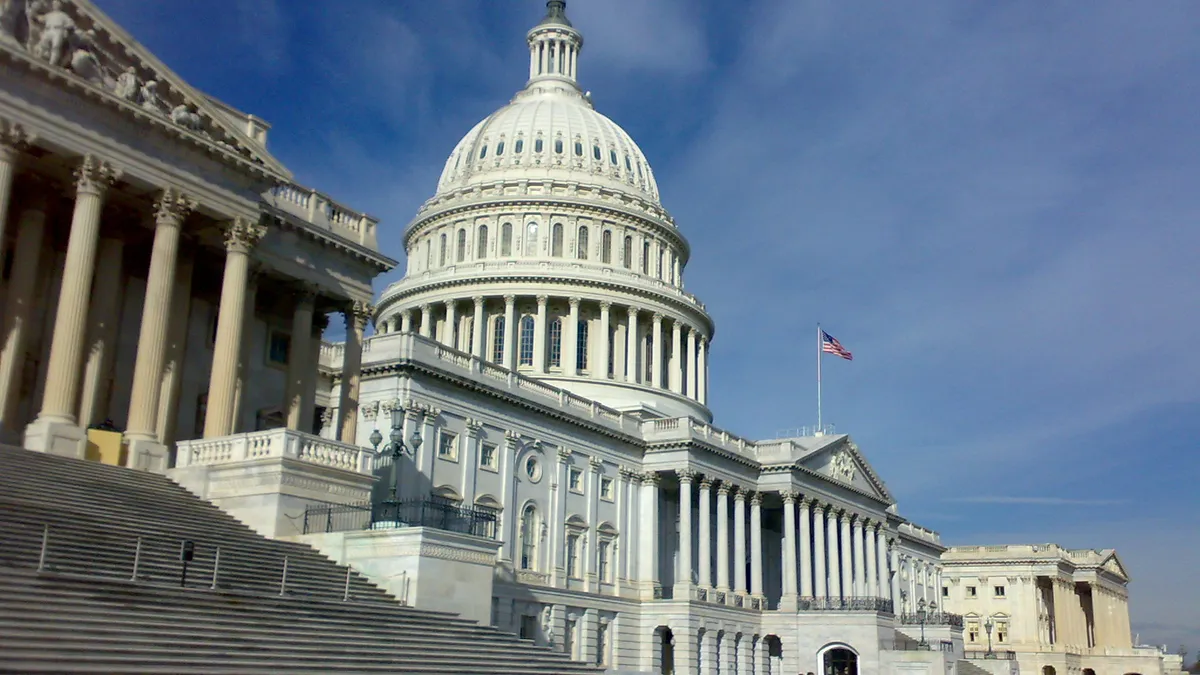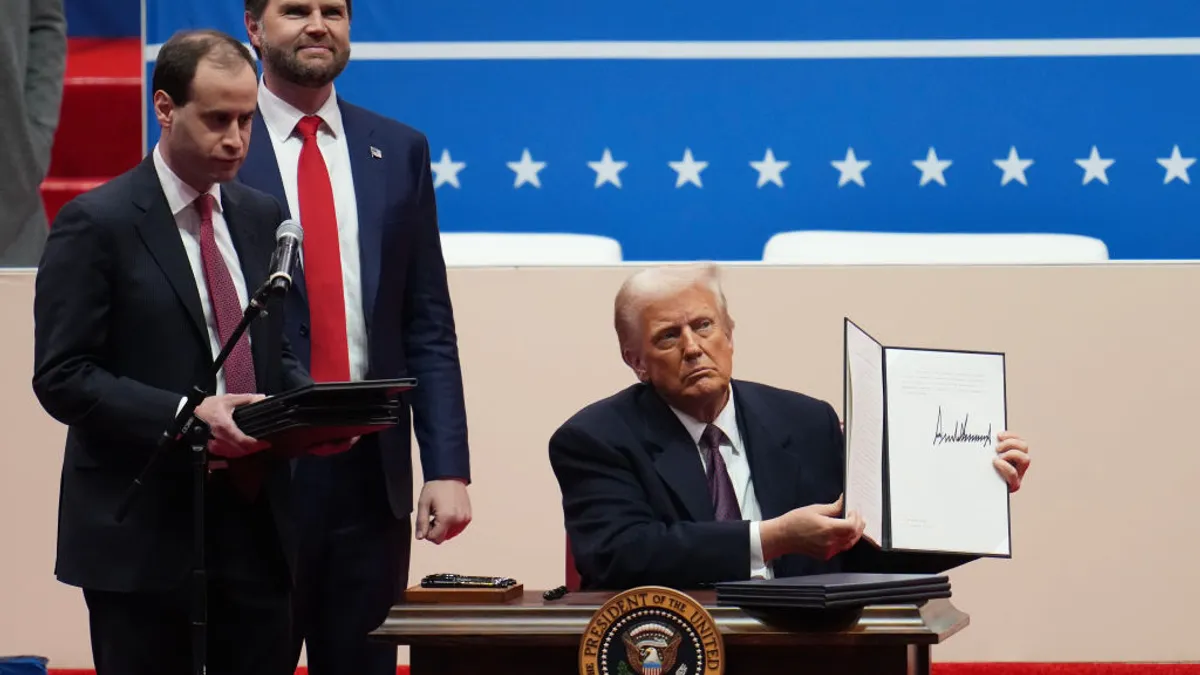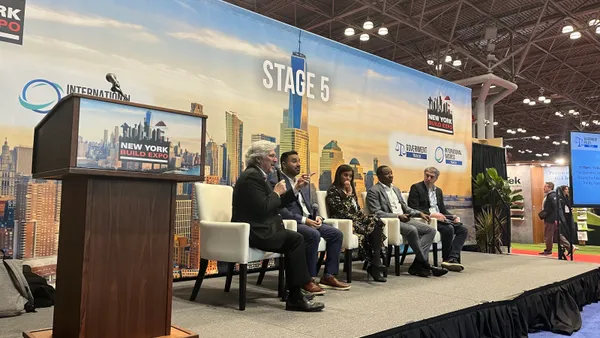UPDATE: President Obama signed the three-month funding extension Friday afternoon before the deadline. However, he criticized Congress for failing to reach a long-term solution. "We can’t keep on funding transportation by the seat of our pants, three months on a time,” he told reporters, according to The Hill.
UPDATE: The Senate voted 91-4 Thursday afternoon to pass the House's three-month highway funding stopgap measure ahead of Friday's deadline.
UPDATE: The Senate voted 65-34 Thursday to pass its six-year transportation funding bill. Democrats were split in their support of the measure, as most of the Democratic leadership voted against the $350 billion plan negotiated by Majority Leader Mitch McConnell (R-Ky.) and Sen. Barbara Boxer (D-Calif.). The long-term bill will be picked up again when both the House and Senate return from their August recess.
Dive Brief:
- The House voted 385-34 — with one voting present — Wednesday to authorize funding of the Highway Trust Fund for three months and keep current infrastructure projects from shutting down. The stopgap will provide $6 billion for highways and $2 billion for mass transit.
- The Senate — which has been working on its own six-year funding solution — said it would pass the House’s three-month fix, as the highway fund is set to expire Friday. The Senate voted 65-35 Wednesday morning to invoke cloture on its own six-year measure, paving the way for a final vote on the long-term bill around noon on Thursday. When Congress returns to Washington after its August recess, the Senate’s six-year bill will go to conference committee with negotiations from the House.
- Congress has now replenished the transportation fund with 34 stopgap measures since 2009. If Congress failed to pass any kind of transportation funding legislation by the July 31 deadline, thousands of road, bridge, and other infrastructure projects across the U.S. would be halted — and a significant number of construction jobs lost.
Dive Insight:
On Monday, Majority Leader Kevin McCarthy announced the House would not vote on thebipartisan Senate bill, which the senior legislative body has been debating for several days. The Wednesday vote on a three-month stopgap — reduced from the House's initial five-month plan — threw a wrench in the Senate’s goal of a more permanent solution.
The Senate’s six-year, $350 billion plan, however, only provides funding for the first three years. A controversial provision reauthorizing funding for the Export-Import Bank attached to the Senate’s bill added extra complication. After much debate, the House decided to exclude a provision for the Ex-Im Bank in its measure.
Late Wednesday, the White House announced President Obama would sign the three-month bill, despite his preference for a more permanent solution.
The Highway Trust Fund is supplied mostly from gasoline and diesel taxes. However, increases in those taxes haven't occurred since 1993, which, combined with a trend toward more fuel-efficient vehicles, has created a significant shortfall in revenue. Legislators from both sides of the aisle have refused to take action to raise the 18.4 cents-per-gallon fuel tax, so Congress must find another way to infuse the transportation program with sufficient funding.
The federal government usually spends about $50 billion each year on roads and transit, according to The Hill, but at its current rate, the gas tax collects only $34 billion annually.
Earlier this month, AGC Chief Economist Ken Simonson blamed the lack of federal transportation funding — which would help states pay for highway and bridge repairs and construction — for slowing construction employment numbers. He said political uncertainty over the funding has been undermining the construction industry’s recovery.
Lawmakers in support of the short-term extension claim it will give Congress more time to figure out the details for a more permanent solution. The House bill passed Wednesday will also allot $3 billion to VA hospitals to keep them from closing in August.













